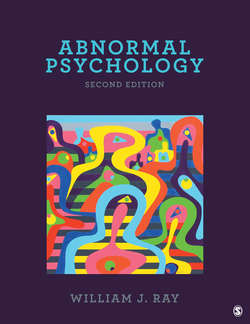Читать книгу Abnormal Psychology - William J. Ray - Страница 122
На сайте Литреса книга снята с продажи.
What Do I Expect to Happen?
ОглавлениеOne characteristic of human beings is that we seek to determine what will happen next. When we are talking with someone, we anticipate the next word they will say. The same is true in psychological experiments. Participants imagine what they are expected to do. If their expectation interferes with the influence of the IV, then the study could give inaccurate results.
In research terminology, this type of bias is referred to as demand characteristics. Demand characteristics occur when a participant’s response is influenced more by the research setting than by the IV. For example, a study might examine the effects of a drug as compared with exercise on reducing hyperactivity in adults. Many participants might believe the drug to be most effective, especially if the drug was given by a mental health professional and the exercise by a non–mental health professional. Those who received the drug might look for signs the drug was reducing hyperactivity. They might then pay more attention to the task used as the DV. If demand characteristics play an important role in the experiment, then they pose a significant threat to internal validity and offer an alternative explanation for understanding the influence of the IV.
demand characteristics: bias that occurs when a participant’s response is influenced more by the research setting than by the independent variable (IV)
placebo effect: the phenomenon that some people show psychological and physiological changes just from the suggestion that a change will take place
experimenter effects: bias that occurs due to the experimenter’s expectations
double-blind experiment: research procedure in which participants do not know whether they are in the experimental group or the control (placebo) group, and the researchers involved in the study also do not know which participants are in which group
blind controls: research participants who do not know whether they are in the experimental group or the control (placebo) group
A related phenomenon is referred to as the placebo effect. The term placebo comes from the Latin verb placere, which means “to please.” It refers to the phenomenon that some people show psychological and physiological changes just from the suggestion that a change will take place. How might this occur in a treatment study to reduce anxiety?
Experimenters also have expectations. For example, knowing that one set of subjects has been assigned to one condition rather than another could result in those participants being treated differently. Such situations are referred to as experimenter effects.
To control for the placebo effect in research as well as experimenter effects, various procedures have been used. One is to use a control group that receives either no treatment or a treatment previously shown to be ineffective for the particular disorder under study. In medical research, it is common to give a “sugar pill” that looks exactly like the medicine with the active ingredient. In psychotherapy research, a control group could be given relaxation training, which has been shown not to be effective on its own for mental disorders.
A more powerful control is to use a double-blind experiment in which the experimental group is divided into two groups. One group is given the actual treatment, and the other is given a treatment exactly like the experimental treatment but without the active ingredient. Neither the placebo group nor the experimental group would know which treatment they are receiving, and in this way, these research participants are said to be blind controls. The term double blind indicates that the experimenters giving the medication also do not know which treatment is experimental and which is a placebo.
In order to sort through the results of our experiments, we must be like detectives who constantly ask if there is another way to understand what was found. Our way of doing that is through research, logic, and doubt. We use research to design a study to consider alternative possibilities. We use logic to consider if our conclusions follow from the results. We use doubt to ask if there is a way to know if we are wrong.
Concept Check
What is the difference between the experimental group and the control group? Why is the control group important?
What is an operational definition? How does it help advance scientific knowledge?
How are the IV, the DV, and confounding variables related?
What is a double-blind experiment, and what are we trying to control for by using that design?
